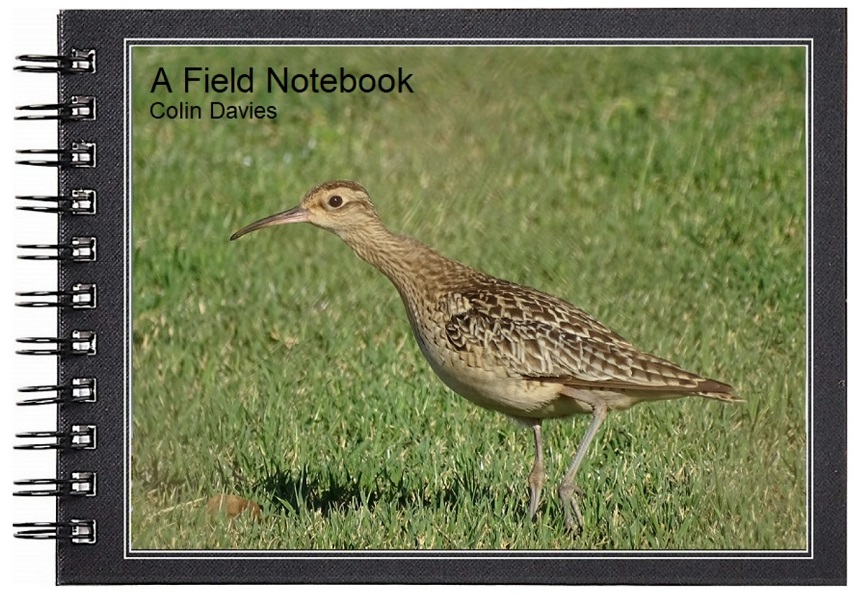On the morning of 17th April 2021, a pair of avocets appeared at Lightshaw
Flash, having been seen at nearby Bickershaw Rucks the previous evening.
Following a prolonged period of dry weather, water levels at Lightshaw were as
low as I have ever seen them for the time of year, with a lot of exposed mud and on the first day of
their arrival I commented to a friend that it looked good as a potential
breeding site, though at this point there was no expectation that they would
stay more than a day or two. After all, avocets had only once previously bred
in Greater Manchester, at Rumworth Lodge near Bolton in 2011 so there was no
reason to believe that they would breed again in the county this year. I put out the news of
the birds presence on social media and the Manchester Bird Forum and the birds
were reported again by another observer later that evening.
My next visit to Lightshaw was on 19th April when there was no sign of any
avocets and I just assumed that they had been passing through and that was the
last we would see of them. To my surprise however, two days later on the 21st,
the pair were back. Now I was a bit more cautious. I contacted the county
recorder and asked his advice regarding publicising these birds. At this stage
though there was still no suggestion that they would breed and we agreed that
unless I saw specific breeding behaviour, there was no need to suppress the
presence of the birds. Thirty minutes later I'd seen them mating and preparing
a scrape! A news blackout from Lightshaw now ensued.
On the 24th April the pair was still present and one bird was sitting
intermittently on the nest. At this stage neither bird seemed particularly
committed to sitting, they would spend 10 minutes on and then 20 minutes off
and occasionally both birds would be around 100m from the nest and seemingly
quite disinterested.
However, when a grey heron approached the nest the pair became very defensive
and engaged in trying to drive it off by threatening it and flying up at it,
until eventually the heron moved away. When the pair returned to the nest one
of them turned a clearly visible egg, but still didn't sit, rather it just
walked into the water and started feeding. The chosen area for the scrape
caused concern as Lightshaw Flash floods very easily and in order to
successfully hatch their chicks it was likely that we would need another month
of dry weather. All we could do was watch and hope.
..... turn into this, after one day of rain? 9am Tuesday.
By the 26th April the pair were much more committed to the nest and there
was always a bird sitting. Presumably they had now laid a full clutch.
Amazingly they had been joined by a third avocet and instead of trying to
drive away the newcomer as I would have expected, the pair seemed quite
happy for the bird to be around although I never saw it approach the
nest. The third bird was only present for one day.

|
| Photo: Avocet turning an egg. |
It was interesting to watch nest relief. The incoming bird would walk
towards the nest shaking his / her feet as if shaking off water droplets,
and then pick up bits of potential nesting material and toss them to one
side. The sitting bird would also move bits of nest material until
eventually standing and walking away to allow the other bird to sit. Nest
relief took place about once an hour.
This was a great period at Lightshaw, with lots of interesting birds on
site, including garganey and little egret, plus plenty of returning summer
migrants.
However, as the first bank holiday in May approached it became clear that a
critical period was approaching. The weather forecast for Monday in
particular was grim, heavy rain and strong winds for most of the day and
into the night. I visited on Monday morning, before the rain and
everything seemed normal. However it was with a feeling of inevitability
that I walked to Lightshaw on the Morning of Tuesday 4th May. I got my first
view of the flash from the canal towpath and it was immediately clear that
the nest had been lost, indeed all of the mud and the whole of the island on
which the birds had nested was now under water. Two avocets were still
present, standing together forlornly on the grass.
Presumably a lot of other nests had also been lost and they had all now been
replaced by two Canada geese on a lake. It was a very depressing sight, but
in truth it had always been a longshot given Lightshaw's susceptibility to
flooding.
9am Monday. How can this....
..... turn into this, after one day of rain? 9am Tuesday.
|
|
|
Video: Avocets defending the nest against a Grey Heron |













Great but sad story! Is there no chance of them re-laying? Especially later into spring when flooding risk has decreased?
ReplyDeleteThe birds have left now. When it flooded there was no mud left and no suitable habit for avocets.
ReplyDelete